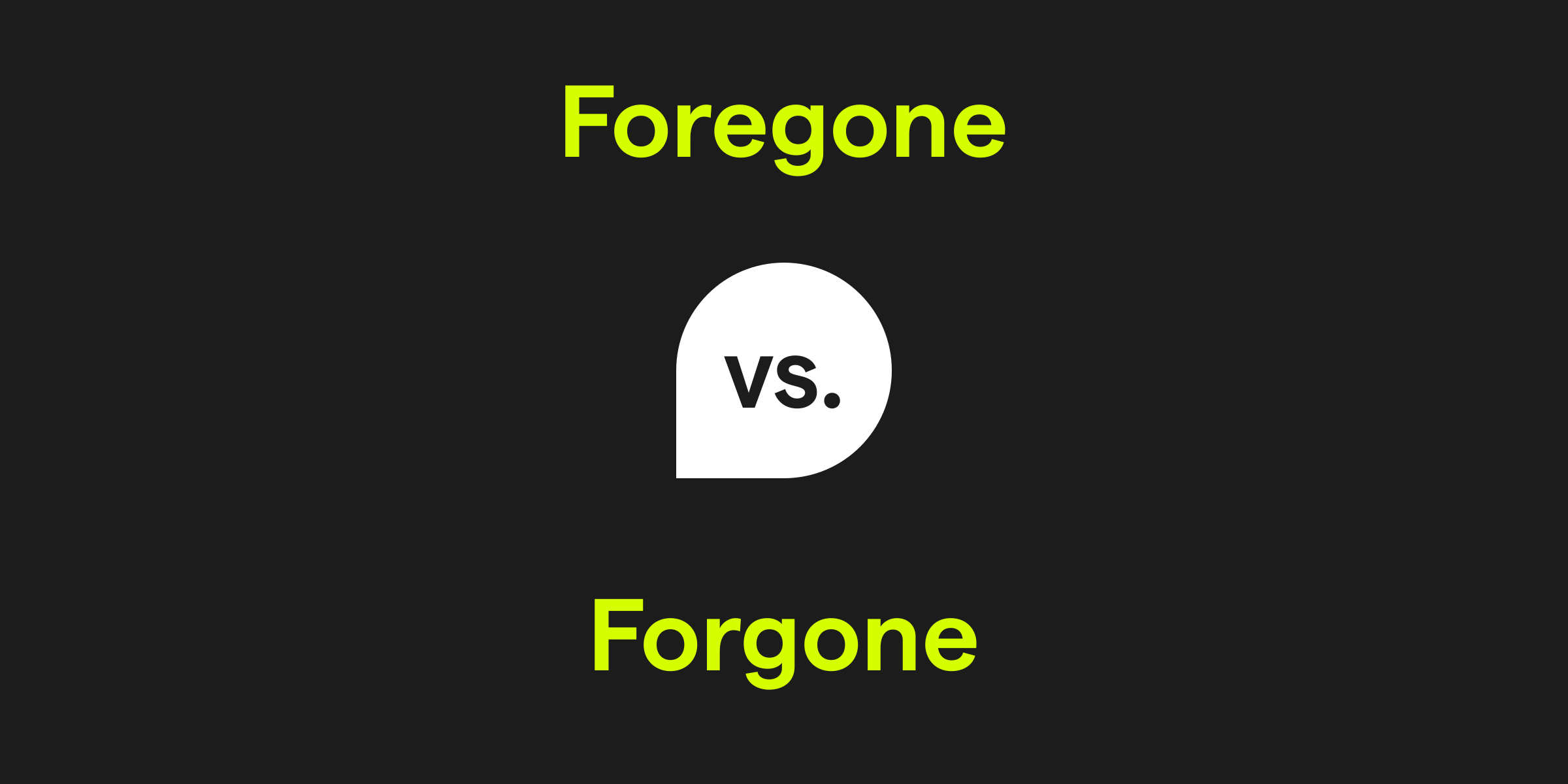Foregone vs. Forgone: What's the Difference?
The words foregone and forgone are often confused due to their similar spelling and pronunciation, but they have distinct meanings and uses. Foregone generally refers to something that has gone before, or an outcome that is inevitable or expected. Forgone, on the other hand, is the past participle of the verb 'to forgo', meaning to abstain from, to do without, or to go without something willingly.

How do you use the word foregone in a sentence?
The word foregone is typically used as an adjective to describe a conclusion or outcome that is so predictable it is considered to have already occurred, or when referring to something from the past. It emphasizes the sense of certainty about an event or situation that has yet to formally conclude.
Examples of foregone in a sentence
- Given the team's poor performance this season, their defeat was a foregone conclusion.
- The artifacts are remnants from foregone centuries, shedding light on ancient cultures.
- After the overwhelming evidence was presented, her resignation seemed like a foregone outcome.
How do you use the word forgone in a sentence?
Forgone, as the past participle of forgo, is used to describe something that one has given up or gone without. It usually indicates a conscious decision to abandon or waive a right, privilege, or opportunity.
Examples of forgone in a sentence
- She forgone her morning coffee in favor of extra sleep time.
- The right to silence is not easily forgone by those who are well-prepared.
- Despite his hunger, he forgone the appetizer to save room for the main course.
Foregone and forgone definition, parts of speech, and pronunciation
Foregone definition:
Foregone is an adjective that means predetermined or inevitable, often used in the phrase 'foregone conclusion' to describe a result that is so certain that it's considered to have already happened.
Foregone parts of speech:
Foregone pronunciation:
Foregone is pronounced as /fɔːrˈɡɒn/ or /fərˈɡɔːn/.
Forgone definition:
Forgone is the past participle of the verb 'to forgo,' which means to omit or decline to take something pleasurable or advantageous; to go without voluntarily.
Forgone parts of speech:
Forgone pronunciation:
Forgone is pronounced as /fɔːrˈɡɒn/ or /fərˈɡɔːn/.
Foregone is an adjective that means predetermined or inevitable, often used in the phrase 'foregone conclusion' to describe a result that is so certain that it's considered to have already happened.
Foregone parts of speech:
- As an adjective: Their success was not really a surprise; it was a foregone determination.
Foregone pronunciation:
Foregone is pronounced as /fɔːrˈɡɒn/ or /fərˈɡɔːn/.
Forgone definition:
Forgone is the past participle of the verb 'to forgo,' which means to omit or decline to take something pleasurable or advantageous; to go without voluntarily.
Forgone parts of speech:
- As a verb (past participle): He forgone his habit of late-night snacking to improve his health.
Forgone pronunciation:
Forgone is pronounced as /fɔːrˈɡɒn/ or /fərˈɡɔːn/.
Foregone vs. forgone in a nutshell
While both foregone and forgone sound similar, their meanings are quite different. Foregone is used to imply something has already happened or is certain to happen, often speaking of events or outcomes. Forgone, being the past participle of 'to forgo,' is about abstaining or giving something up by choice. Understanding the context and grammatical role of each word is key to using them accurately in speech and writing.
Get AI Writing Assistance Wherever You Type
Make sure your vocabulary is on point and every punctuation mark is in the right place, no matter where you’re working. Grammarly works across more than 1 million websites and apps so you can improve your writing without copying, pasting, or breaking focus.

More Commonly Confused Words
Interest piqued? Pore (not pour) over other commonly confused words to help your writing reach peak (not peek) performance.